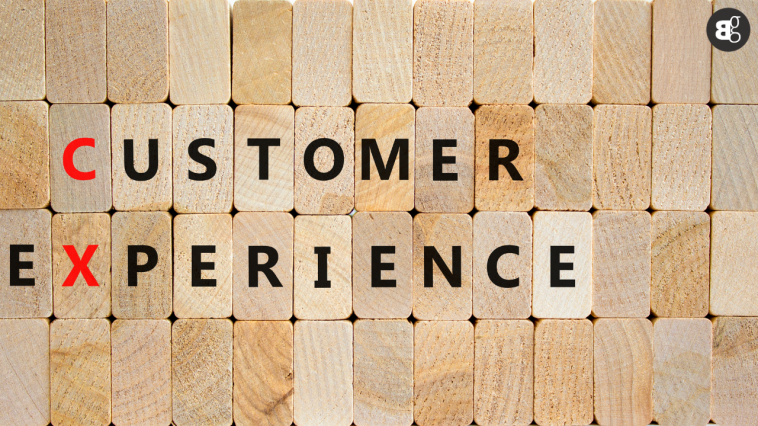Introducing this new digital landscape has profoundly impacted user behaviour, resulting in a shift in their expectations. Notably, there is little appetite among either consumers or businesses to revert to
Integrating digital technology and customer experience creates a distinct convergence, enabling businesses to offer tailored interactions that cater to individual preferences. By adopting a digital approach, companies can empower customers to customize their engagement, selecting the channels and level of support that best align with their unique requirements.
Today’s customers expect a seamless and personalized way to deliver just that. However, the key question for businesses is: how can you harness the power of digital transformation to elevate your customer experience and stay ahead?
Present a Unified Multichannel Experience
In the modern business, merely operating from a physical store is no longer sufficient. Customers now demand businesses to have an online presence and offer service over the phone, in addition to in-person interactions. They anticipate a purchasing experience that aligns with their requirements and understanding, whether it involves self-service options or engaging sales interactions.
While it’s unlikely that any business hopes to encounter issues with its customer’s reality. What truly matters is not the occurrence of these problems, but rather how the company chooses to address and resolve them when they arise.
The benefits of using digital technology for communication are quite clear now. Companies can ensure that their customers have constant access to assistance, or they can establish a reliable schedule for when help will be accessible to customers.
Companies can utilize advanced IP phone systems and live chat to design complex routing processes that incorporate interactive menus, automation, and customer information. These features enable companies to enhance the efficiency of their customer service teams by directing customers promptly to the most suitable representatives for assistance.
Businesses have the opportunity to utilize cloud storage, wiki technology, advanced AI, and search capabilities to offer self-service options to their customers. This enables users to save time and tap into the expertise of your support team as well as the insights shared by other customers.
Read More: How To Develop A Winning Customer Experience Strategy?
Use Digital Tools to Personalize Interactions
Businesses need to emphasize personalized experiences that address individual preferences if they want to fulfil the expectations of today’s consumers. Nowadays, customers want a great level of control over their buying experience, wanting to be able to alter goods or services to suit their unique needs.
However, there is a growing expectation among consumers for brands to engage with them as unique individuals rather than just faces. The advancement of digital tools has enabled companies to connect with their customers on a vast that was previously unimaginable. Nonetheless, the drawback of catering to large customer populations is that individual clients are weary of being treated impersonally or as mere statistics.
By utilizing digital transformation, businesses can gain a deeper understanding of their allows them to tailor the customer experience at a personal level. Having a comprehensive customer profile enables companies to anticipate the preferences of specific demographic groups.
Analyzing past purchases and customer interactions provides valuable insights into customer needs, enabling brands to better understand their motivations when they reach out. By consolidating this data in a centralized customer relationship management system, businesses can proactively address customer needs and personalized experiences.
Offer Transparency and Data Governance
While personal it also has a double-edged meet customer expectations, companies must gather a substantial amount of data about their target audience.
As people become more informed about the data businesses gather, that collection. Personalization requires a trade-off: consumers must relinquish some autonomy. By returning a measure of control to the customer and being open about data management practices, companies can foster a deeper sense of trust and alleviate concerns.
A robust digital foundation enables companies to safeguard sensitive to manage their data with ease. This infrastructure provides customers with the autonomy to review, modify, or grant permission for the use of their data, ultimately leading to increased satisfaction
Transform Customer Feedback into Insight
Checking customer satisfaction is a common business practice, but there are now many ways to measure it, creating lots of customer data. This large amount of information can be overwhelming and makes it hard to find useful insights.
Lever in this area. Advanced computing capabilities can efficiently process vast amounts of data, while data extract valuable meaning from it. A range of customer relationship management (CRM) platforms and software solutions are available to uncover actionable customer insights. By harnessing these digital tools, you can refine your customer experience approach and drive meaningful improvements.
Technology solutions enable businesses to streamline the collection of customer feedback, making it easier for customers to provide input and resulting in and identify areas for improvement, allowing them to refine their approach and ask targeted questions to drive further growth.
By delving deeper into the unique needs and challenges of your target audience, CRM systems and survey tools enable you to monitor and analyze data over time, identifying patterns and trends that can be visualized in real-time reports and dashboards, empowering your sales and customer service teams to outcomes.
By fostering companies can craft a tailored experience that resonates with their target audience. Consumers crave a sense of being understood by can provide a wealth of valuable insights, enabling businesses to refine and enhance their customer experience approach.
Read More: Embracing Digital Transformation in Your Business: 7 Strategies
Digital Transformation Can Unlock The Next Level of Your Customer Experience
Digital transformation involves transitioning companies further into the online realm. By having the appropriate digital framework in place, your business can enhance its accessibility, flexibility, and responsiveness.
Modern consumers are accustomed to constant connectivity and expect easy access. They desire brands that empathize with them and value feeling understood. The rise of technology in social interactions has shaped these expectations, which have now extended to the business sector.
A successful digital transformation can yield significant benefits not only for a company’s internal operations but also for its customers. By implementing a strategic digital while simultaneously boosting their efficiency and productivity.






